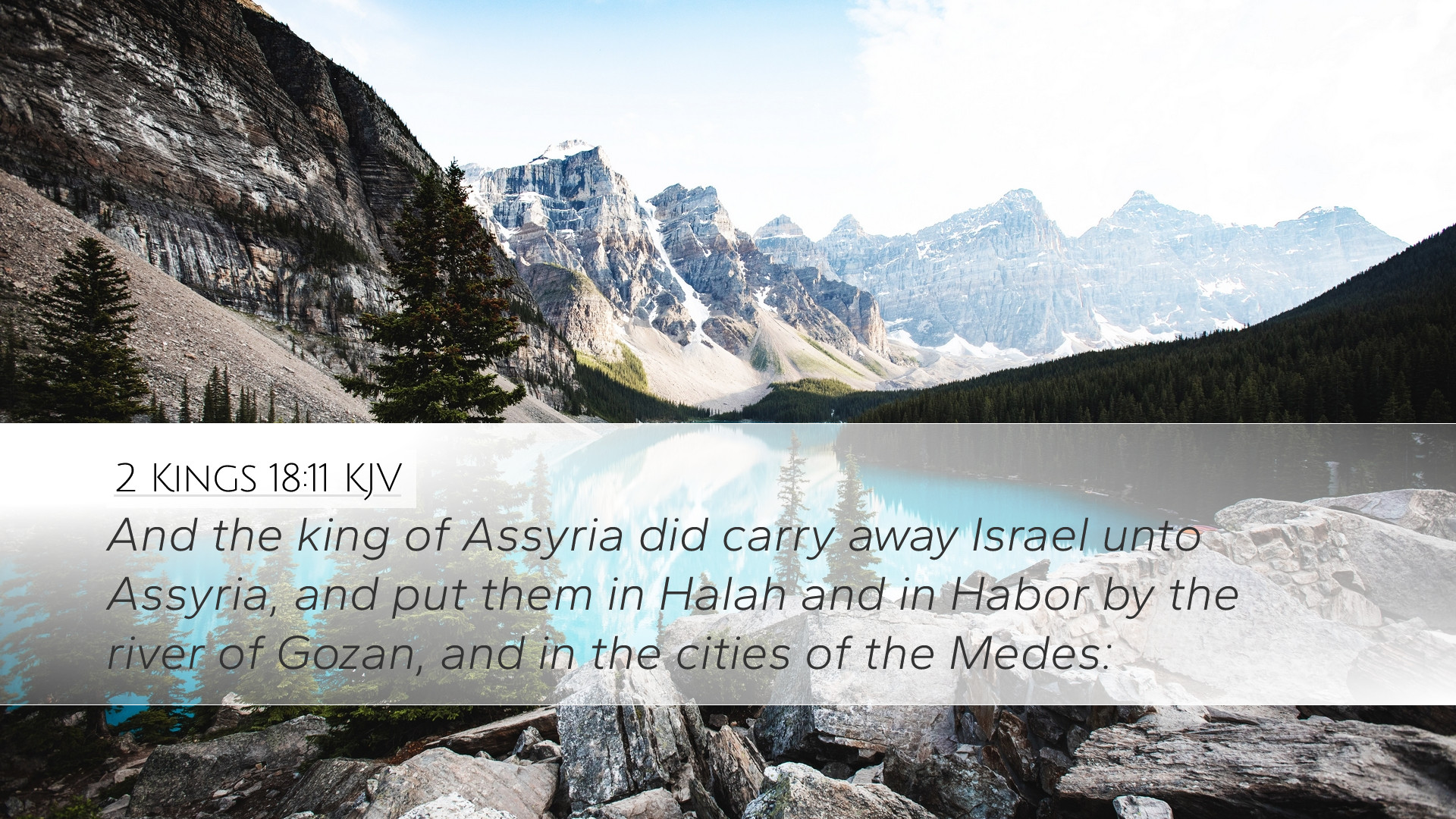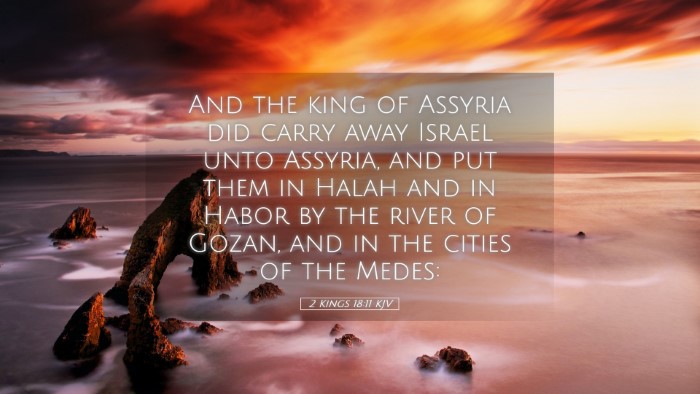Commentary on 2 Kings 18:11
Bible Verse: "And the king of Assyria did carry away Israel unto Assyria, and put them in Halah and in Habor by the river of Gozan, and in the cities of the Medes." (2 Kings 18:11 KJV)
Contextual Background
The verse in question is situated in a broader narrative concerning the Kingdom of Israel's decline and the consequential Assyrian Exile.
This period is marked by significant political turmoil and spiritual deterioration, provoking God's judgment and the Assyrian captivity.
Various commentaries examine the significance of this event, providing theological and historical context essential for understanding the implications of the verse.
Theological Insights
Matthew Henry emphasizes the sovereignty of God in administering judgment through foreign nations.
He notes that, despite the circumstances, God's ultimate control is evident, as the Assyrians serve as instruments of His divine plan.
This perspective encourages readers to perceive trials and calamities as opportunities for spiritual reflection and renewal.
Adam Clarke provides exegesis into the locations mentioned in the scripture.
Halah, Habor, and Medes are referenced not merely as geographical sites but as symbols of the dislocation and scattering of God’s people.
These locations also exemplify not only physical exile but spiritual estrangement from their covenantal identity and relationship with God.
Albert Barnes highlights the importance of repentance and obedience.
He reflects on how Israel’s rebellion led to their ultimate downfall and emphasizes that the loss of their homeland was a direct result of their failure to heed divine warnings.
This admonition serves as a sobering reminder to contemporary believers of the consequences of forsaking God’s ways.
Historical Context
The historical backdrop of 2 Kings reveals the Assyrian threat looming over Israel during the reign of King Hoshea, leading to Israel's ultimate fall around 722 BC.
The Assyrians, known for their brutal conquests, represented not just a military force but also a profound cultural and religious upheaval.
Commentary on Specific Terms
- Israel: Refers to the Northern Kingdom which had diverged from Judah, resulting in a loss of unity and faithfulness to God.
- Carry away: Indicates not merely a physical transportation but also a deep spiritual and societal rupture.
- Halah and Habor: Unfamiliar locales for Israel that symbolize their dislocation from their land and heritage.
- Medes: Represents the expansion of the Assyrian Empire and the inclusion of diverse peoples in their exilic policy.
Practical Applications
Reflecting on 2 Kings 18:11 offers numerous practical insights for today's pastors, theologians, and scholars:
- Understanding Judgment: The narrative illustrates how straying from God’s commands leads to dire consequences. This insight can inform preaching and teaching regarding the need for faithfulness to God in both personal and corporate worship.
- God's Sovereignty: Despite the severity of exile, God retains sovereignty over nations and events. This provides profound comfort to believers facing uncertainties or turmoil in contemporary culture.
- Importance of Repentance: The call to repentance and turning back to God is timeless. Understanding the context of Israel’s fall can motivate communities of faith today to prioritize spiritual health and accountability.
- Identity in Exile: For those in today’s world who may feel displaced or marginalized, recognition that God can work through exile speaks of His providential care and purpose.
Conclusion
2 Kings 18:11 serves as both a historical account and a theological lesson that resonates deeply beyond its immediate context.
By drawing on the insights of noted commentators, we can see the multifaceted implications of this verse as it relates to the themes of judgment, sovereignty, and hope in God’s redemptive plan.


